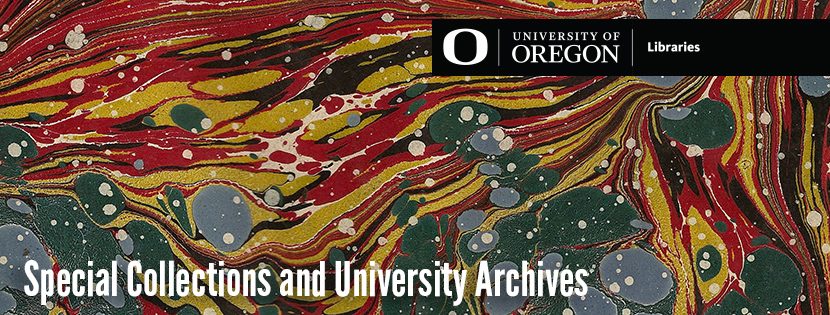New Collection: Shobundo Senjafuda Collection
Earlier this year, Special Collections and University Archives acquired a new collection of Japanese votive slips, or fuda, which are now available for viewing and research in the SCUA reading room.
Fuda, also called nōsatsu, are Japanese votive slips printed using a woodblock process. Originally, created in the 11th century by religious pilgrims as devotional items, these slips have become part of a vibrant collecting and exchange culture in Japan and abroad. The religious senjafuda are generally unadorned, consisting of only the pilgrim’s name, and pasted to the walls of temples and shrines. The more detailed and luxurious kokanfuda, featuring many subjects including kabuki characters and mythological creatures, are collected and traded by members of a nōsatsu-kai, or exchange clubs. Individual nōsatsu clubs generally commission artists, carvers, and printers to produce new slips for trading at nōsatsu-kai meetings and events.


